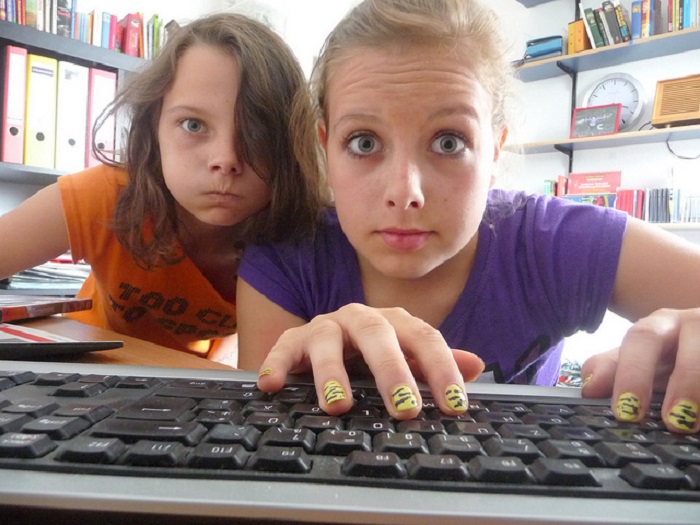
The wealth of online content with the potential to reinforce learning makes the Internet an appealing place for parents who want the best for their children, even at the youngest age. But with reward comes risk, and there are many things that children need to know before going online.
There are many things that parents can teach kids about the internet in an age appropriate way, Here are the top seven things we recommend every child know before they go online.
1. Concentrate on content
Kids are often tempted to click on flashing ads in the sidebar or those that pop up across the screen, but such distractions tend to lead them away from what they’re looking at and to sites with inappropriate content. While it’s good to make your kids aware of what might happen when they click, accidents do happen. Let them know that they’re not in trouble and it’s ok for them to come and get you if they get to a website they don’t want to be on. Doing so is a much better alternative to endless clicking that can take them farther away from the site where they wanted to be, and also puts your computer more at risk for malware downloads.
2. Keep your passwords to yourself
While we often encourage our kids to share, passwords shouldn’t be shared with friends. Educate your child about the fact that giving their friends their passwords opens the door to their account being jeopardized. Friends may have friends’ best interests in mind now, but you never know when a fractured friendship may make someone want to take out their hurt feelings on you. Older kids also need to know the importance of creating strong, hack-proof passwords.
3. Pause before you post to be conscious of what you’re sharing
Teens often don’t think about long term consequences of their split-second decisions. The instant gratification of sharing words and seeing photos online for friends to like and comment can be their downfall, because once something is on the internet, it’s there forever. These days, colleges and future employers are conducting online searches to see what teens are saying online and the kinds of photos are being shared.
What’s a good rule of thumb for teens? Make sure the updates that are part of their digital footprint are things they’d be okay with having their grandmother read or see. And to prevent oversharing, work with your child to establish proper Facebook privacy settings. Finally, kids should know that their parents have a password to each of their social accounts, so even if grandma doesn’t see it, mom will.
4. Friend only those you know in real life
Since you never know who might be hiding behind an avatar and the username, kids of all ages should treat those individuals like strangers. Just as you’ve taught them to not give their name or home address to a stranger, it’s important for them to know the importance of creating a username that won’t compromise their identity or share any personal information that could give away where they live. This lesson applies to online chat sites like Skype or SnapChat as well as online games like Club Penguin or those played through your connected gaming system.
5. Be wary of links even from trusted sources
How many times have you gotten an email from a personal friend’s compromised email account asking you to wire money via a link embedded in an email? Teach children to be wary of links that come online and via email and any downloadable documents. While we could once trust information sent by friends, malware is often distributed through spammy attachments and links from those we know. And make sure they know NEVER to provide username and password or any other personal information on sites they followed from an email link, or they may become the victim of a phishing attack—a fraudulent website that mimics a real websites in order to collect personal information or user names and passwords. If they want to visit a site, they should type the URL directly into the address bar.
Read more: 7 Things Every Child Must Know Before They Go Online
















